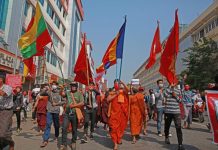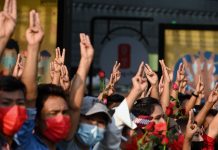
The US and South Korea have abruptly ended negotiations on sharing the cost for maintaining US troops on the Korean peninsula.
The announcement by the US and South Korea to abruptly end talks on cost sharing for US troops on the peninsula follows President Donald Trump's decision to raise the cost for US forces by approximately 400% for 2020.
The price hike announcement frustrated defense officials as well as Republican and Democratic lawmakers while it angered the South Korean government. For decades, the US and South Korea have successfully negotiated the cost sharing agreement.
At a press briefing, US chief negotiator James DeHart claimed that the US delegation came "with open minds, and even prepared to adjust stance as needed in order to move towards a mutually acceptable agreement," but that the South Korean team's proposals were not responsive to US' "fair and equitable burden-sharing."
DeHart added: "We cut short our participation in the talks today in order to give the Korean side some time to reconsider and I hope to put forward new proposals that would enable both sides to work towards a mutually acceptable agreement in the spirit of our great alliance."
Meanwhile, South Korea's chief negotiator Jeong Eun-bo pointed out that the negotiation could not proceed as planned, as the US delegation not only demanded a significant increase in the cost for South Korea, but also added a new category.
Jeong argued: "We couldn't conduct the talk as plans as the US team left the venue. We maintain our current stance that the cost division (between the US and South Korea) needs to be decided based on the Special Measures Agreement frame in which we have agreed for the past 28 years."
Bruce Klingner, a senior fellow at the Heritage Foundation, mentioned that North Korea has already launched 24 missiles this year, which violated UN resolutions and threaten South Korea and Japan.






